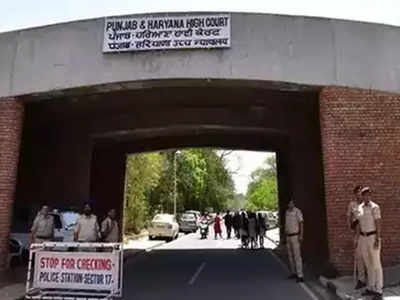Freedom of religion and judicial independence in Cyprus
President Erdogan’s comments raise important issues concerning the independence of the judiciary and a conflict between Turkey’s responsibility for securing human rights in the north
The knee jerk reaction in Europe to anything President Erdogan says or does is invariably negative. When the president of the European Council Charles Michel beat Ursula Von Der Leyen to the only available chair at Ak Saray, like a child playing musical chairs, President Erdogan was blamed for disrespecting her office as commission president in the EU pecking order and her gender.
And so it was last week when he attacked northern Cyprus’ top judge and demanded the reversal of a decision blocking non state supervised teaching of the Quran; except that on this occasion the negative criticisms of Erdogan were well deserved as he was very disrespectful to the Turkish Cypriot supreme constitutional court.
As always in politics it is not what you say but how you say it that causes offence, and the way Erdogan dealt with the decision of the court was so insulting to the judiciary it united the legal profession in their condemnation of his meddling, and they showed their displeasure in public demonstrations in support of secularism and the independence of the judiciary in northern Cyprus.
What happened was that in answer to a question from CNN Turk that the constitutional court had shut down Quran courses, President Erdogan replied that he had instructed his Foreign Minister Mevlüt Cavusoglu to discuss the issue with the Turkish Cypriot leader as it was not possible for him to accept the decision. The judge needed to learn how secularism is handled in Turkey, he said. A change in attitude was needed and he would not tolerate the denial of the right to freedom of religion in the teaching of the Quran.
More ominously, he warned that religious and secularist issues had been resolved in Turkey and that northern Cyprus is not another France and needed to move in line with the model in Turkey. He said that the judge who made the decision needed to correct her error quickly and that if this did not happen, he would have to take appropriate action.
The judge whose decision excited president Erdogan’s ire is none other than Lady Justice Narin Ferdi Şefik, the first woman president of the north’s supreme court.
In the end it turned out to be a storm in a teacup based on a misunderstanding of the court’s ruling.
As the president of religious affairs Talip Atalay said, a permanent solution to the problem could be found by an arrangement that ensures that teaching the Quran and similar activities are carried out under the control and supervision of the ‘education ministry’.
By article 23(4) of the ‘TRNC constitution’, religious education and teaching is supposed to be under the supervision and control of the state as indeed it is in Turkey. Not only that but northern Cyprus is said by its constitution to be a secular republic like it is in Turkey, which means it is officially supposed to be neutral in religious matters – the decision of the court does not say anything different than the constitutions of both Turkey and the ‘TRNC’.
Nonetheless, President Erdogan’s comments raise important issues concerning the independence of the judiciary and a conflict between Turkey’s responsibility for securing human rights in the north and the right to an independent judiciary free from political interference.
The north is unique in that owing to the particular circumstances resulting from the fact that Turkey is in effective control, it is Turkey that is ultimately responsible for securing human rights there, so strictly speaking President Erdogan was not out of order – though he did go over the top deliberately to undermine Turkish Cypriot secularism.
It was decided by the European Court of Human Rights in the landmark decision in Cyprus v Turkey that as the state in effective control of northern Cyprus Turkey has the responsibility of securing the entire range of substantive human rights there. Thus if the right to freedom of religion is violated by any public authority it would be Turkey not the ‘TRNC’ that would be answerable in the European Court of Human Rights.
Had the north’s constitutional court blocked teaching of the Quran to children absolutely this would have been a breach of the right to be taught one’s religion, which forms an integral part of the right to freedom of religion under Article 9 of the ECHR as well as the right of parents to choose their children’s religious education contained in article 2 of the First Protocol.
Some limitation to freedom of religion in the interests of public safety, public order, health or the protection of the rights of others is permissible but only if it is proportionate to a legitimate aim – as occurred recently when gatherings in mosques and churches were suspended to prevent the transmission of Covid-19. However, any limitation to religious teaching including regulatory state supervision and control has to be proportionate to a legitimate head of public policy.
President Erdogan implied that the meaning of a secular republic that he devised for Turkey since 2003 should now be extended to northern Cyprus. From the laicism of Kemal Atatürk that forbade religious involvement in government it became one that reflects the fact that Turkey has a Muslim majority population and converted Hagia Sofía from a museum into a mosque.
What President Erdogan was obliquely attacking, however, was the laicism of Turkey’s founding father Kemal Atatürk whose legacy is very strong among Turkish Cypriots. He said that northern Cyprus is not like France, but Turkish Cypriots are not fervent supporters of secularism in France; they are fervent supporters of the secularist path set by Kemal Atatürk followed by most Turkish Cypriots in the north.
It is true that under European human rights law the exercise of right of freedom to practise the Muslim faith in the north does concern Turkey as the country responsible for securing human rights there, but the right to freedom of religion does not trump the independence of the judiciary. Both are rights under human right law, and you cannot use one right to destroy another.
Alper Ali Riza is a queen’s counsel in the UK and a retired part-time judge







 (RNS) — We all know that
(RNS) — We all know that